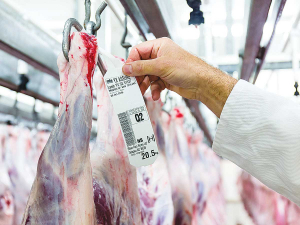MIA launches 2026 Red Meat Sector Dragon’s Den for innovative ideas
The Meat Industry Association (MIA) is once again looking for game-changing ideas for New Zealand's red meat processing and exporting sector.
 The meat industry says the Government's seizure of Rapid Antigen Tests (RAT) from meat companies could force the closure of some processing plants if staff contract the Omicron variant.
The meat industry says the Government's seizure of Rapid Antigen Tests (RAT) from meat companies could force the closure of some processing plants if staff contract the Omicron variant.
The Government's so called 'consolidation of Rapid Antigen Tests (RAT) from meat companies has the potential to force the closure of some meat processing plants if staff contract the Omicron version of Covid.
Many meat processing companies took the precaution of purchasing their own RATs as a means of protecting their staff and keeping their works going in a Covid outbreak. However, because, on the Government's behalf, the Ministry of Health failed to get sufficient supplies in on time, it effectively pilfered what it could from the private sector.
Meat Industry Association (MIA) policy manager Paul Goldstone told Rural News that meat companies had purchased the now Government-appropriated RATs as a means of screening workers and preventing the virus getting into plants. He says an Omicron outbreak would be disastrous for the sector and could lead to whole plants being closed down.
Goldstone says the RAT issue is also linked to the rules around home isolation. He points out some workers live in households where there are large numbers of people of varying age groups, who all work in the meat sector.
Goldstone says the current government rules on isolation pose a serious risk to the meat industry.
"We have been pushing hard for some realism with the current criteria," he told Rural News. "A single positive case of Covid in a worker or a household member could result in that entire household being isolated for 10 days."
Goldstone says this could see large parts of a plant being put into isolation and likely shut down.
"We were going to be using RATs to act as a form of screening to prevent infected workers getting on site," he explains. "The meat companies purchased RATs to minimise this risk, but without them, plants are now at risk and so are valuable meat exports."
The sale of Fonterra’s global consumer and related businesses is expected to be completed within two months.
Fonterra is boosting its butter production capacity to meet growing demand.
For the most part, dairy farmers in the Waikato, Bay of Plenty, Tairawhiti and the Manawatu appear to have not been too badly affected by recent storms across the upper North Island.
South Island dairy production is up on last year despite an unusually wet, dull and stormy summer, says DairyNZ lower South Island regional manager Jared Stockman.
Following a side-by-side rolling into a gully, Safer Farms has issued a new Safety Alert.
Coming in at a year-end total at 3088 units, a rise of around 10% over the 2806 total for 2024, the signs are that the New Zealand farm machinery industry is turning the corner after a difficult couple of years.

OPINION: Meanwhile, red blooded Northland politician Matua Shane Jones has provided one of the most telling quotes of the year…
OPINION: This old mutt has been around for a few years now and it seems these ‘once in 100-year’ weather…